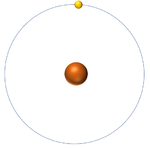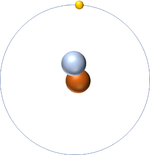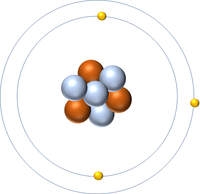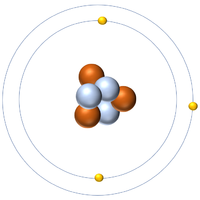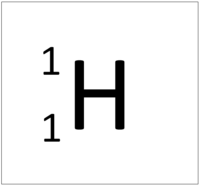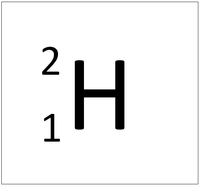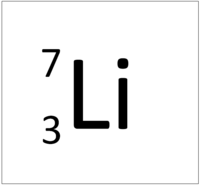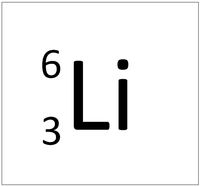Difference between revisions of "Isotope"
(→Examples) |
|||
| Line 29: | Line 29: | ||
| style="height:20px; width:200px; text-align:center;" |[[Lithium]] always has 3 [[proton]]s but in this [[isotope]] there are 3 [[neutron]]s. | | style="height:20px; width:200px; text-align:center;" |[[Lithium]] always has 3 [[proton]]s but in this [[isotope]] there are 3 [[neutron]]s. | ||
|} | |} | ||
| + | |||
| + | ===Calculating Atomic Mass=== | ||
Revision as of 00:39, 26 November 2018
Key Stage 4
Meaning
Isotopes are atoms with the same number of protons (the same element) but a different number of neutrons.
About Isotopes
- Each element has many isotopes but some are stable and others are unstable so they decay quickly into other isotopes or a different element.
- Different isotopes of the same element have the same atomic number but different atomic mass due to the different numbers of neutrons.
Examples
| Hydrogen-1 | Hydrogen-2 | Lithium-7 | Lithium-6 |
| Hydrogen always has 1 proton but isotope there are no neutrons. | Hydrogen always has 1 proton but in this isotope there is 1 neutron. This isotope of Hydrogen is known as Deuterium. | Lithium always has 3 protons but in this isotope there are 4 neutrons. | Lithium always has 3 protons but in this isotope there are 3 neutrons. |
